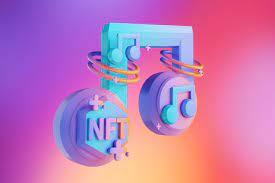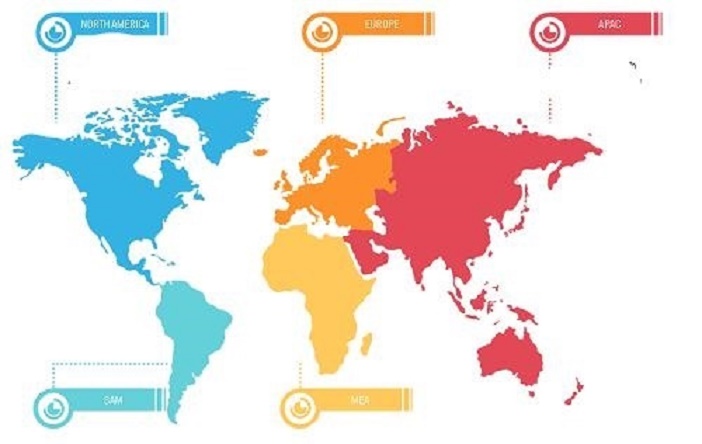The world of music is constantly evolving, and one of the latest innovations taking the industry by storm is Music NFTs. These digital tokens represent ownership of unique music tracks and are changing the way artists and fans interact with music. In this article, we will explore the concept of Music NFTs, their impact on the music industry, and what the future might hold for this revolutionary technology.
What Are Music NFTs?
Music NFTs, or Non-Fungible Tokens, are digital assets that use blockchain technology to represent ownership of a specific piece of music. Unlike traditional music streaming or downloads, where you simply have access to a copy of a song, owning a Music NFT means you have a unique and verifiable claim to the original work. This ownership is recorded on the blockchain, making it secure and tamper-proof.
NFTs have gained immense popularity in various creative industries, from art to collectibles, and music is no exception. Music NFTs can include a wide range of items, from individual tracks to entire albums, concert tickets, and even virtual meet-and-greets with artists. Each of these items is represented as a distinct NFT, which can be bought, sold, and traded like physical assets.
The Role of Blockchain Technology
Blockchain technology, often associated with cryptocurrencies like Bitcoin, plays a crucial role in the creation and validation of Music NFTs. The blockchain is a decentralized ledger that records all transactions in a secure and transparent manner. This technology ensures that the ownership and provenance of a Music NFT are easily verifiable, eliminating the risk of counterfeit or unauthorized copies.
When a musician decides to release a music track as an NFT, they create a digital certificate of ownership on the blockchain. This certificate contains information about the song, such as the title, artist, and a digital signature that confirms its authenticity. Once the Music NFT is minted, it can be sold to fans or collectors, who will have the option to resell it to others. Every subsequent transfer of the NFT is recorded on the blockchain, ensuring the history of ownership is clear and transparent.
How Musicians Benefit from Music NFTs
The music industry has been rapidly evolving over the past few decades, and many musicians have struggled to adapt to the changing landscape. Music NFTs offer several advantages to artists, helping them regain control and financial stability in a digital world. Here are some ways in which musicians benefit from Music NFTs:
Direct Monetization: Music NFTs allow musicians to directly monetize their work by selling it to fans and collectors. This eliminates the need for record labels or streaming platforms as intermediaries, enabling artists to retain a more significant portion of their earnings.
Royalties and Smart Contracts: NFTs can be programmed with smart contracts that automatically distribute royalties to artists and other stakeholders every time the NFT changes hands. This ensures that musicians continue to earn from their work, even in the secondary market.
Unique Experiences: Musicians can offer unique experiences as part of their NFTs, such as access to exclusive concerts or behind-the-scenes content. This strengthens the connection between artists and their most devoted fans.
Ownership and Control: By selling Music NFTs, artists maintain ownership and control over their music. They can decide how their work is used and who can access it, avoiding issues of unauthorized distribution.
Global Reach: Music NFTs have a global reach, allowing artists to connect with fans from around the world. This opens up new markets and opportunities for growth.
The Impact on Fans and Collectors
Fans and collectors also benefit from the rise of Music NFTs. Here’s how this technology has changed the game for them:
Ownership and Scarcity: Music NFTs provide a sense of ownership and exclusivity that physical records or digital downloads cannot. Owning a Music NFT means having a piece of music history that is verifiably scarce.
Supporting Artists: Fans can support their favorite artists directly by purchasing their NFTs. This direct support strengthens the connection between musicians and their audience.
Profit Potential: Music NFTs can appreciate in value, especially if the artist gains more recognition or if the NFT becomes a sought-after collectible. This potential for profit adds an exciting dimension to music ownership.
Exclusive Content: Many NFTs come with exclusive content or experiences that regular music purchases do not provide. This could include access to live-streamed performances, virtual meet-and-greets, or personal messages from the artist.
Transparency: The blockchain’s transparency ensures that the provenance of Music NFTs is clear, reducing the risk of purchasing counterfeit or unauthorized music.
Challenges and Concerns
While Music NFTs offer significant advantages, they also come with their share of challenges and concerns:
Environmental Impact: The energy consumption of blockchain networks, particularly in the case of cryptocurrencies like Bitcoin, has raised environmental concerns. Music NFTs that use energy-efficient blockchains can mitigate this issue to some extent.
Copyright and Licensing: The use of copyrighted samples or materials in music NFTs can lead to legal issues. Musicians must ensure they have the necessary rights to the content they use in their NFTs.
Access and Inclusivity: Some argue that Music NFTs may create exclusivity in the music industry, with only those who can afford NFTs having access to certain content. This can raise concerns about inclusivity and the accessibility of music.
Market Volatility: The value of Music NFTs can be highly volatile, making it a risky investment for collectors. It’s crucial to research and understand the market before making a purchase.
Scams and Fraud: The emerging nature of the NFT market has also led to an increase in scams and fraudulent activities. Buyers need to exercise caution and verify the authenticity of NFTs.
The Future of Music NFTs
As Music NFTs continue to gain popularity and evolve, the future holds exciting possibilities for both artists and fans. Here are some trends and developments to look out for:
Integration with Streaming Platforms: Some streaming platforms are exploring ways to integrate NFTs into their services. This could allow musicians to release exclusive NFT content alongside their regular music catalog.
NFT Music Festivals: We may see the emergence of NFT-exclusive music festivals where fans and collectors can enjoy live performances, virtual meet-and-greets, and other unique experiences.
Blockchain Interoperability: The ability to use NFTs across multiple blockchain networks could become a reality, making it easier for artists and fans to transact with NFTs.
Tokenized Concert Tickets: Musicians can tokenize concert tickets, making it easier to manage ticket sales, combat scalping, and ensure that genuine fans have access to events.
NFT Albums: Entire music albums could be released as NFTs, providing fans with a more immersive and collectible experience.
Education and Awareness: As the NFT space matures, there will be more education and awareness efforts to help both artists and fans navigate the complex world of NFTs and blockchain technology.
Regulation and Standards: Governments and industry bodies may introduce regulations and standards to ensure the ethical and legal use of NFTs in the music industry.
In Conclusion
Music NFTs are a revolutionary development in the music industry, offering new opportunities for artists and fans alike. The technology provides musicians with direct monetization, control over their work, and unique ways to engage with their audience. Fans, on the other hand, can enjoy a sense of ownership, exclusivity, and direct support for their favorite artists.
However, the adoption of Music NFTs is not without its challenges, including environmental concerns, legal issues, and market volatility. As the technology evolves, it will be crucial to address these challenges and work towards a more sustainable and inclusive future.
The future of Music NFTs looks promising, with potential integration into streaming platforms, tokenized concert tickets, and more immersive fan experiences. As the industry continues to grow, education, awareness, and regulation will also play a vital role in ensuring the responsible use of NFTs in music.
In a world where the music industry is constantly evolving, Music NFTs have the potential to harmonize with the future, reshaping the way artists and fans connect with music. Whether you’re an artist looking to explore new opportunities or a fan interested in owning a piece of music history, the world of Music NFTs is worth exploring. It’s a journey that promises to be as unique and exciting as the music it represents.





